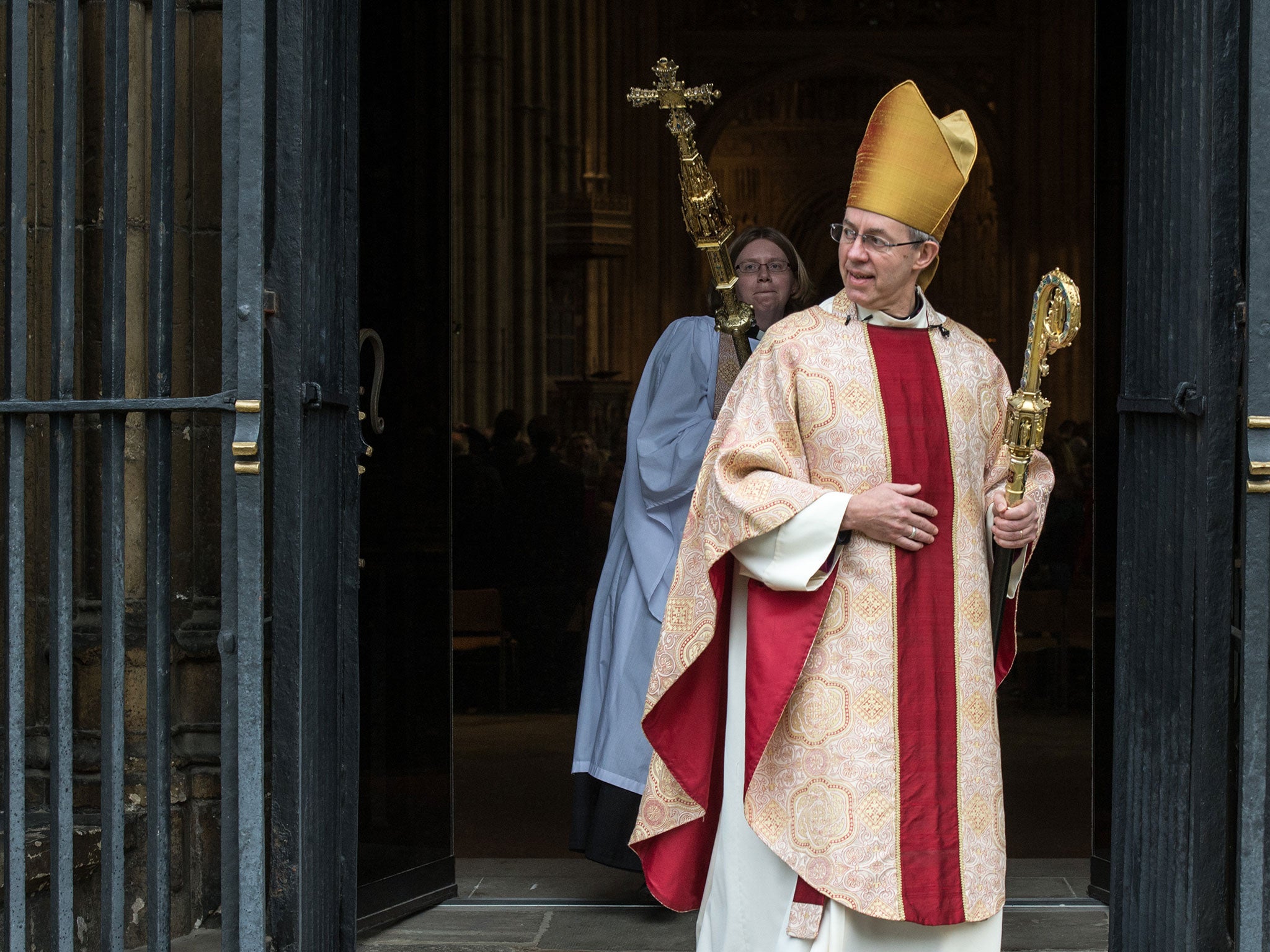Of course God isn’t a man – ignore this cynical attempt by the Church of England to fill empty pews
A church that attempts to appear modern and hip in attempts to lure in millennials is as embarrassing as it is off-putting, like a drunk uncle trying to join in a conversation unbidden

Your support helps us to tell the story
From reproductive rights to climate change to Big Tech, The Independent is on the ground when the story is developing. Whether it's investigating the financials of Elon Musk's pro-Trump PAC or producing our latest documentary, 'The A Word', which shines a light on the American women fighting for reproductive rights, we know how important it is to parse out the facts from the messaging.
At such a critical moment in US history, we need reporters on the ground. Your donation allows us to keep sending journalists to speak to both sides of the story.
The Independent is trusted by Americans across the entire political spectrum. And unlike many other quality news outlets, we choose not to lock Americans out of our reporting and analysis with paywalls. We believe quality journalism should be available to everyone, paid for by those who can afford it.
Your support makes all the difference.Asked in a church in Trafalgar Square whether God had a gender, Archbishop of Canterbury Justin Welby said “God is not a father in exactly the same way as a human being is a father. God is not male or female. God is not definable.” The argument is extraordinarily dated in Christian circles, but arguments and discussions over gender pronouns and whether people can define as whichever gender they feel they belong in are a considerable part of the modern discourse. Welby will have been aware his comments would spark a large argument, and of course, many words have been spilled over his belief by writers, myself included.
As a practising Catholic, the guiding books of the faith make clear Welby is right: that there should be any argument is bizarre. The Catechism of the Catholic Church states “In no way is God in man's image. He is neither man nor woman. God is pure spirit in which there is no place for the difference between the sexes.” As Welby says, human language is utterly inadequate when trying to describe many aspects of faith, including the Holy Trinity. But Welby’s intervention has led to many others speaking out and complaining that gendered language is still used in religious services, referring to God as “our father”.
Newsnight hosted a discussion on whether the language describing the language of the Bible and liturgy was patriarchal for using the term “father”. Rev Gavin Ashenden argued the term was used to describe the intimacy and relationship between worshippers and God: “what we’re talking about is the relationship and intimacy that we experience as father”, while Rev Margaret Joachim worried that people with poor relationships with their father may find the term problematic.
As Emily Maitlis pointed out, there is a suspicion the decision to bring up the issue of gender and God plays into contemporary conversations about gender fluidity: the Church of England has a huge problem with falling worshipper numbers and empty pews, and has regularly been accused of attention seeking ploys to entice in younger people. Tweeting about cafes and wifi in churches, rather than service times drew criticism for a lack of seriousness about their mission.
This incident will only compound the church’s perceived problem with hypocrisy. After endorsing a report by the IPPR think tank, it was revealed Archbishop Justin Welby had criticised the gig economy and payday loans, despite the Church of England owning shares in Amazon, and pulled out of a rescue effort for the infamous payday loan company Wonga. Just this week, it was revealed the Church paid women over £10,000 less than men, and that Lambeth Palace - the seat of the Church of England – operates a pay gap of 24 per cent.
Recent statistics show the crisis facing the church: only one in five people who define as Anglican attend Church of England services at least once a month, compared to two in five Roman Catholics. Between 1983 and the present day, those identifying as Anglican has fallen 20 per cent, while the number identifying as Roman Catholic has remained static. Only 2 per cent of young adults identify as Anglican, while 10 per cent are Roman Catholic, five times as many as the established church.
Why is Catholicism more appealing to young people? More and more Millennials find a certain emotional and spiritual core is lacking in an economic climate that stops people owning a house, marrying or having children. Increasing numbers of people are turning to tarot and astrology to assuage that sense of emptiness. The young Catholics I know through various groups are far more serious about their faith than older people, and especially their parents: they may be politically left but are keen on the traditions of the Church and serious about theology.
It is this seriousness, and the continuation of a traditional approach to faith and liturgy that fills Catholic pews. A church that attempts to appear modern and hip in attempts to lure in millennials is as embarrassing as it is off-putting, like a drunk uncle trying to join in a conversation unbidden. People are looking to be part of a tradition, and a community that takes faith seriously rather than chasing headlines for attention. Welby and his colleagues should look inwards at their services and outreach rather than trying to lever themselves into contemporary discussions and obscure arguments.
Join our commenting forum
Join thought-provoking conversations, follow other Independent readers and see their replies
Comments